Three Beekeepers, One Chef and a Recipe (Or Why You Should Buy Local Honey)
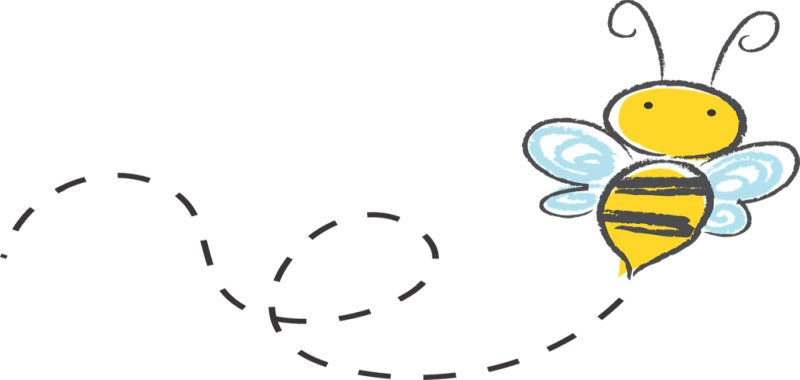
I’m a big fan of local honey producers. Well to tell the truth I really like the beekeepers too. Bee people are passionate about their craft and the hordes of the miraculous insects that are in their tender care. When you are lucky enough to meet a beekeeper, relish every moment of their stories and be mindful of what they know about the earth. How bees not only give us a beautiful natural product to sweeten our lives but that the humble bee benefits other living things.
Last year I made a conscious effort to be more mindful of the food I consume. A good friend of mine only uses honey when she needs a sweetener. No refined sugars for her. This made me think about the raging war against sugar these days and how I should probably satisfy my sweet tooth in a more healthful way. Of course I had no plans to cut out the sweets entirely….blasphemy! So off I went to ask my friend Google to see what I could find about sugar substitutes. In a nutshell “sugar is higher on the glycemic index (GI) than honey, meaning it raises blood sugar levels more quickly. This is due to its higher fructose content, and the absence of trace minerals.”* The remainder of honey is comprised of water, pollen and minerals, including potassium and magnesium. While there is no definitive scientific evidence, these components could be tied to health benefits.
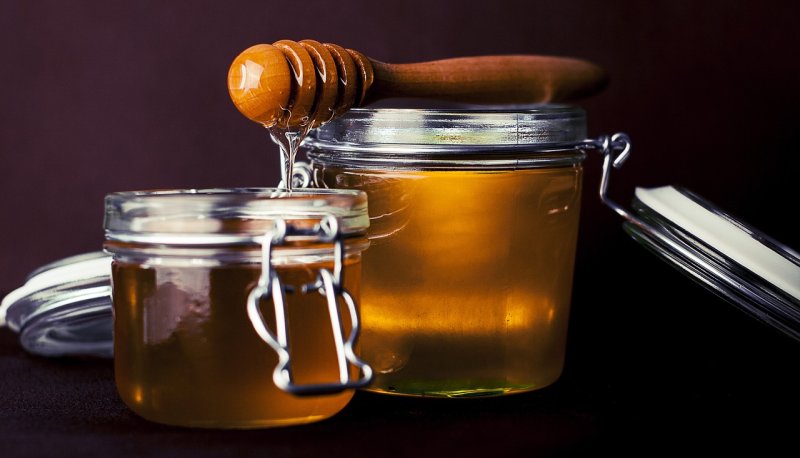
So honey it would be. It was winter so I decided to check out what was available at the grocery store. Little did I know I can get local honey all year round. I was enchanted by the little (plastic, ugh) jar that was a cute bear filled with honey. Well, I assume it was honey. More about that later. So what does a bear have to do with honey other than being dumb enough (visions of cartoon Yogi and Boo Boo) to grab a beehive and lick the honey out of it while being attacked by it’s residents? That didn’t really inspire my confidence in the product so off I went to find out more from the horse’s, er…..beekeeper’s, mouth.
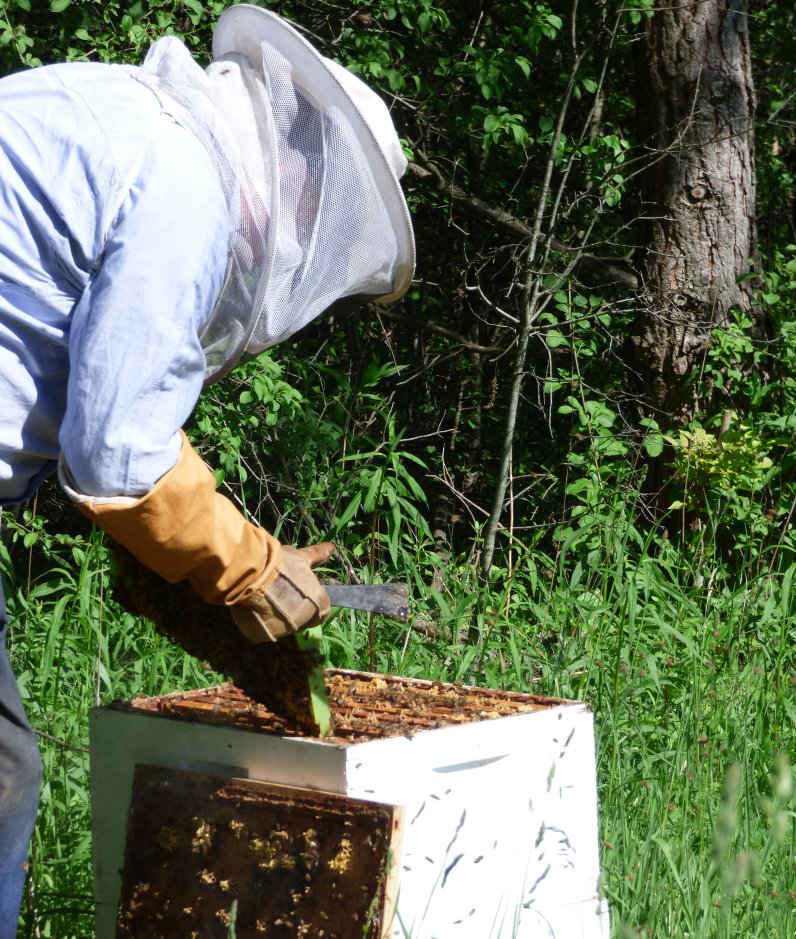
I wondered about the healing factors of honey for allergies. When I went to pick up my creamed honey (my favourite type of honey) at B Sweet Honey Nature Company I had a great chat with Beekeeper Rick Robertson. He told me that “I used to have to take two Claritin a day until I started beekeeping and eating my own honey. My allergies went away with the exception of a few mild reactions once in a while. Then I just eat more honey and the symptoms disappear.” Well, well, well, this is a fine piece of information for allergy sufferer me. Let’s find out more.
I also spoke to Terry Burr of The Burrs and The Bees and pleasantly found out more than expected. This is what he told me:
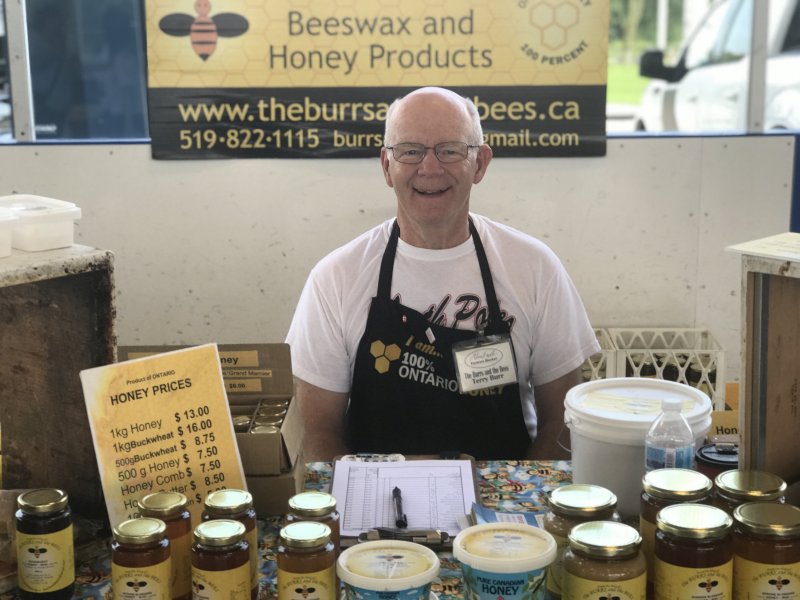
1. UNADULTERATED HONEY. The issue of adulterated honey is a big one, buying from a local beekeeper is a great first step to getting pure honey. Honey can be compromised many ways: high fructose corn syrup is added (it is sweet, it is cheap) and also rice syrup can be added (also sweet and cheap.) Bees can be force fed sugar cane syrup which results in mild (poor tasting) honey. Syrup should only be fed to bee hives in the fall, just before the winter season, and not sold for human consumption. Honey can be adulterated by labeling a false country of origin. Why would they do this? Because their honey is laced with chemicals (and we know that) so they try to market it as from somewhere else to hide the fact that illegal chemicals are included i.e. packaged in Mississauga ON. READ MORE HERE ABOUT RECENT NEWS REGARDING “FAKE HONEY” COMING INTO CANADA.
2. ALLERGY RELIEF. Local honey contains microscopic particles of pollen, but so does non local honey, but the pollen in local honey helps build up your immunity to hay fever. Eating honey from the USA will do nothing to help you address your allergies in Ontario, you need local Ontario honey to do that. Search the internet to prove to yourself that there is documented proof that eating local honey will address allergy issues; or talk to any local beekeeper about it and they will give you their experiences. You could also be season specific. If you are only allergic to goldenrod in the fall and not dandelions in the spring, then there is no point in eating spring honey for your allergies. It will only help you if you eat fall honey with the ragweed pollen in it.
3. NON-PASTEURIZED. Milk needs to be pasteurized; don’t let anyone tell you that the same is true for honey. IT IS NOT. Honey has natural anti-bacterial properties to protect it. Honey will keep forever in a sealed container. It is the only food that does that. If you pasteurize honey you destroy one of the benefits of eating honey, the enzymes. Without the enzymes, honey is just another sweetener. You can heat up honey to liquefy it (without pasteurizing it). If you only heat it to 110 degrees F it will never pasteurize, but higher than that on a sliding scale of temperature and time it can kill the enzymes.
4. PURE HONEYCOMB. People seek out honeycomb because by definition it addresses the adulteration issue. The honey is still in the comb, it cannot be added to so it is pure honey. To address the chemical issue in the honey comb you have to trust your local beekeeper, so talk to them about how and when and if they use a chemical. There is a time and place for them, and during a honey flow is not one of them. They are needed to address some bee diseases and they are needed to control some parasites that invade the hives, but they are removed before any honey flows. Other chemicals are used in the fall after the last crops have been harvested, to control parasites in a different way and to help with other bee diseases such as Nosema and AFB (American foul brood).
5. SUPPORT LOCAL. It doesn’t matter which local beekeeper you deal with but do deal with a local one. Local beekeepers like to think that they are not in competition with each other for your business, but rather they are in competition with the big producers. If you compare the pros and cons, the local beekeepers win every time. You support your local economy, your local farmers market and your local beekeepers.
6. TASTE. Local honey tastes better – but that’s for you to decide!
COOKING WITH HONEY
If you’ve been to Union Market Square in Arkell then you know that Chef/Owner Stephen Goyda knows good food. I asked him what we may not know about honey and was surprised by some if what I learned.
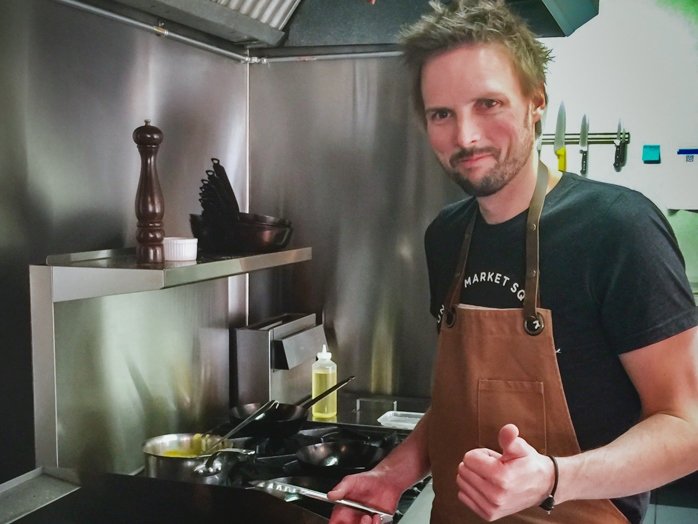
Me: People associate honey with sweet dishes, can honey be used in savoury cooking as well and how?
Chef Goyda: Yes. Honey is used in a variety of ways for savoury cooking. It’s used in glazes for meats, fish, and vegetables, it’s in vinaigrette’s to help balance out the acidity,
Me: Can honey be used as a substitute for sugar? If so, in the same measurement or is it different?
Chef Goyda: You can use honey as a sugar substitute in most cases. Honey is naturally sweeter than cane sugar so you’ll end up using less. In most baking recipes if you’re replacing sugar with honey you’ll end up using less (1 cup of sugar = 1/2 cup to 2/3 cup of honey) you will need to reduce your liquid measurement in your recipe since honey is in liquid form.
Me: What is the most surprising use of honey you ever seen?
Chef Goyda: Honey being used as a topical antiseptic. The theory (or story goes) because honey is made up of mainly glucose and fructose they both absorb water thus drying out the wound and inhibiting the growth of bacteria and fungi.
Me: What is your favourite use for honey?
Chef Goyda: I really like using it in dressings, sauces, glazes, and soups. When you need just that little bit of sweetness to round out a dish it never lets you down.
Chef Goyda was kind enough to share this recipe using honey and I thank him very much for him sharing this deliciousness with us.
Honey Roasted Carrots
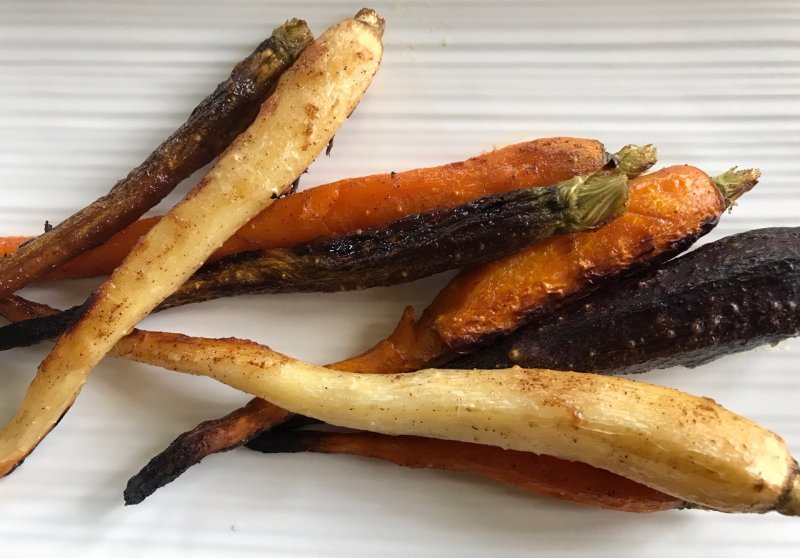
Ingredients:
- 1lb Baby Carrots
- 1 tbsp Olive oil
- 2 tbsp Local Honey
- 1/4 tsp Cinnamon
- 1/8 tsp Ground ginger
- Salt and Pepper to taste
- Some fresh Thyme
Instructions:
- Pre-heat oven to 450F
- Toss carrots with honey and seasonings.
- Line a baking sheet with parchment.
- Place carrots in a single layer on baking sheet.
- Roast for 25-35 minutes until the carrots have reached your desired taste.
- Remove from oven, allow to cool for a few minutes and enjoy.
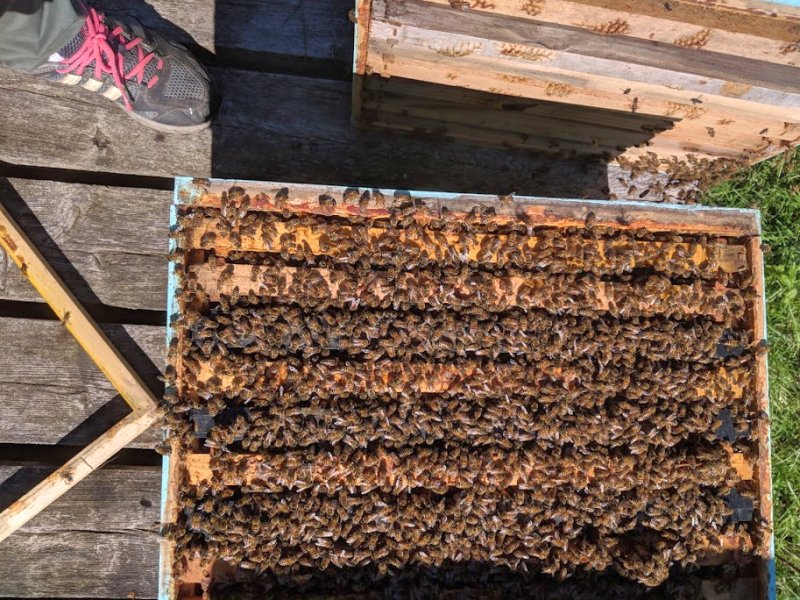
And finally I spoke to Julie Paré of Julie and the Bees in Arkell. Paré raises a truly incredible strain of bee that was developed by a monk, Brother Adam, who dedicated his life to developing this bee that Paré now raises today with the help of her Danish comrade and talented bee breeder Ivan Nielsen and Canadian breeder Bill Ferguson. Paré tells me “The bees have taught me to leave nature as I found it, don’t try to change or control it, simply respect and protect it the best I can. The apiary I am fortunate to have at Piper Hill is a property I have been employed to take care of. Over the last five years I have planted many organic perennials, trees and herbs (cilantro, Greek basil, thyme, lavender to name a few of the bees favorites.) There is something pretty magical about seeing your bees enjoying a plant you have grown from seed. When people ask me what they can do to help our bees, I show them the trees and plants the bees love to forage on and where they can buy these organic treasures so they can grow them themselves.”
Spread the health and buy some local honey for yourself, friends or family. What a great hostess gift or stocking stuffer. (Ahh, is it too soon for Christmas reference? Sorry!) Interested in talking to or purchasing from a local beekeeper? Here’s where you can find some of them:
Aberfoyle Farmers’ Market
Open Saturday’s 8am to 1pm until the last Saturday in October
23 Brock Road S.
PUSLINCH, ON N0B 2J0
www.aberfoylemarket.ca
B Sweet Honey Nature Company
4182 Sideroad 20 S, RR2
PUSLINCH, ON N0B 2J0
519-763-0370
Email: [email protected]
www.puslinchnaturallynativetrees.ca
The Burrs and the Bees
Farm-gate-stand address:
4190 Sideroad 20 S, RR2
PUSLINCH, ON, N0B 2J0
519-822-1115
www.theburrsandthebees.ca
Julie and the Bees
711 Arkell Road,
ARKELL, ON N0B 1C0
519-820-9547
www.julieandthebees.ca
Union Market Square
599 Arkell Road
ARKELL, ON N0B 1C0
519-767-0024
www.unionmarketsquare.com
*REF: https://www.medicalnewstoday.com/articles/317728.php
